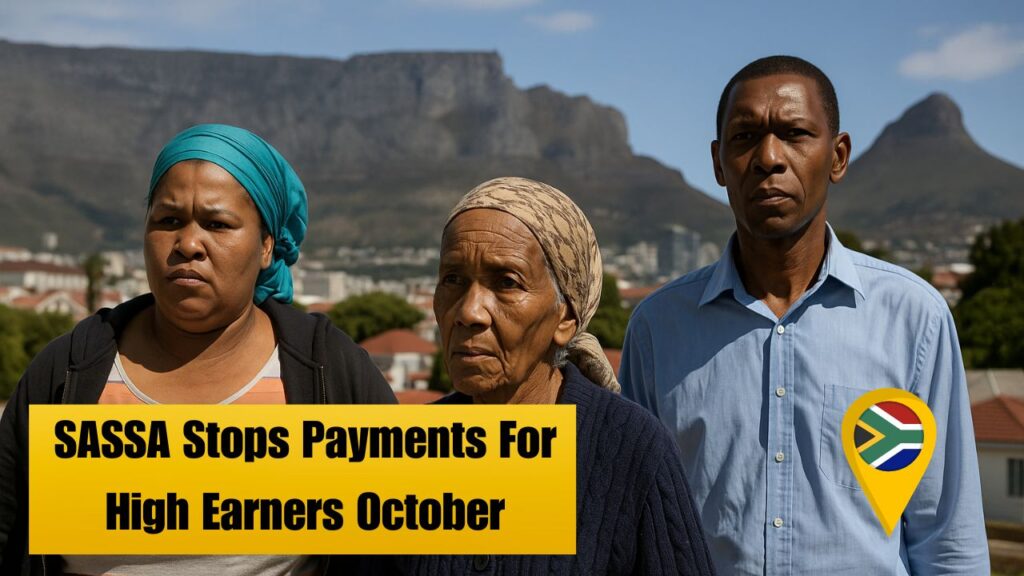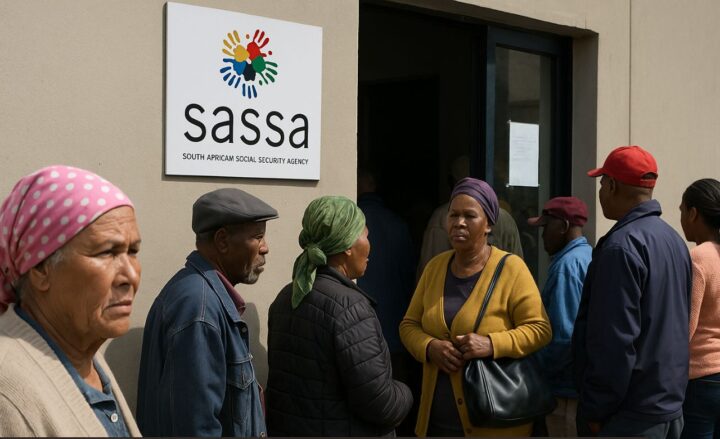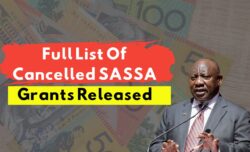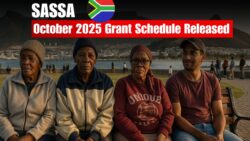The South African Social Security Agency (SASSA payment update) has announced a major change affecting beneficiaries starting October 25, 2025. Individuals with higher incomes will no longer be eligible for certain social grants, marking a significant policy shift. This move is intended to ensure that social assistance is targeted toward those who need it most. The decision has sparked conversations among beneficiaries, financial advisors, and government watchdogs about the implications for household budgets and grant eligibility rules. It is essential for recipients to understand how this affects their payments and explore alternative support if needed.

Reason Behind the Payment Halt
The primary reason for halting payments for high earners is to optimize government resources and focus on the most vulnerable populations. SASSA has identified that a portion of grant recipients have incomes exceeding the eligibility threshold, which reduces the effectiveness of social support programs. By implementing this change, the government aims to redirect funds to low-income families who rely heavily on grants for essential needs like food, healthcare, and education. Experts suggest that this step will help maintain the sustainability of the social grants system over the long term while encouraging transparency and accountability.
Who Will Be Affected
The new regulation primarily impacts beneficiaries whose monthly earnings surpass the set income limit. High-income recipients of grants such as child support, disability allowance, or old age pensions may see a suspension of payments. SASSA has clarified that individuals earning above R15,000 per month, for example, could experience halted disbursements. It is crucial for recipients to review their eligibility criteria and update SASSA with accurate financial information. Families and caregivers must assess alternative support channels to mitigate disruptions in monthly cash flow.
Steps Beneficiaries Should Take
Beneficiaries who may be affected by the grant suspension are advised to act proactively. First, check your SASSA account status online or at the local office. Update any income declarations and submit supporting documents to avoid errors. Those who lose eligibility temporarily can explore other government relief programs or community support initiatives. Additionally, keeping track of payment schedules and communicating with SASSA officials ensures timely resolution and prevents unnecessary delays. Being informed and organized is the best strategy to navigate these changes.

Impact on Household Budgets
The suspension of SASSA grant payments for high earners will inevitably affect household financial planning. Families accustomed to receiving grants may need to adjust monthly expenses and prioritize essential spending. Some households may turn to savings or local community aid to cover gaps in food and utility bills. Financial advisors recommend creating a clear budget, reviewing non-essential expenses, and seeking temporary financial support if needed. Understanding the policy change allows households to plan strategically and minimize stress related to the payment halt.
| Grant Type | Current Monthly Amount | Eligibility Income Limit | Payment Status After Oct 25 |
|---|---|---|---|
| Child Support Grant | R560 | R15,000 | Halted for high earners |
| Disability Grant | R1,980 | R15,000 | Halted for high earners |
| Old Age Pension | R2,315 | R15,000 | Halted for high earners |
| Foster Child Grant | R1,040 | R15,000 | Halted for high earners |
FAQs
1. When do these payment changes take effect?
Starting October 25, 2025.
2. Who is considered a high earner?
Beneficiaries earning above R15,000 monthly.
3. Can high earners reapply later?
Yes, if income drops below the limit.
4. Where can beneficiaries check their status?
Online SASSA portal or local offices.






